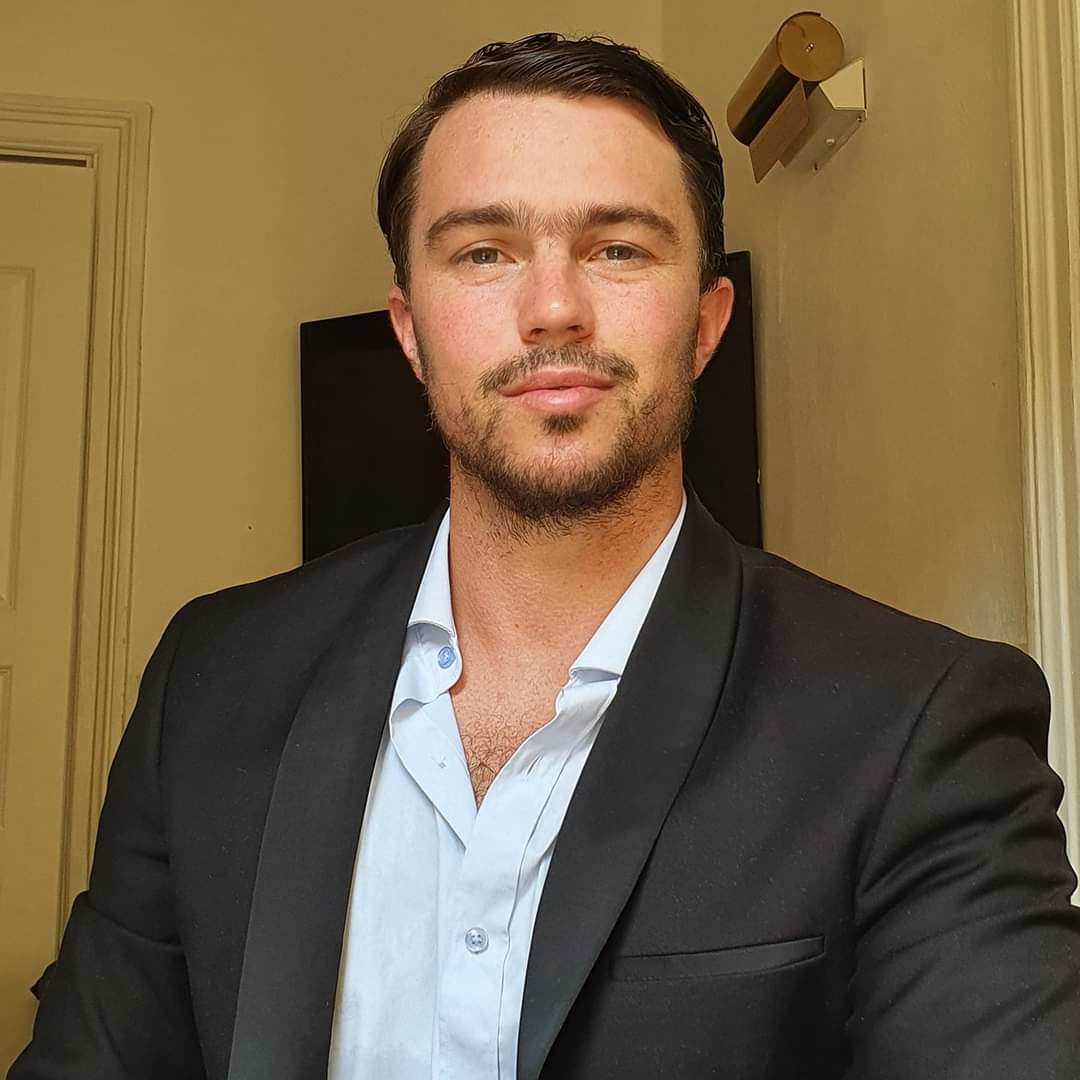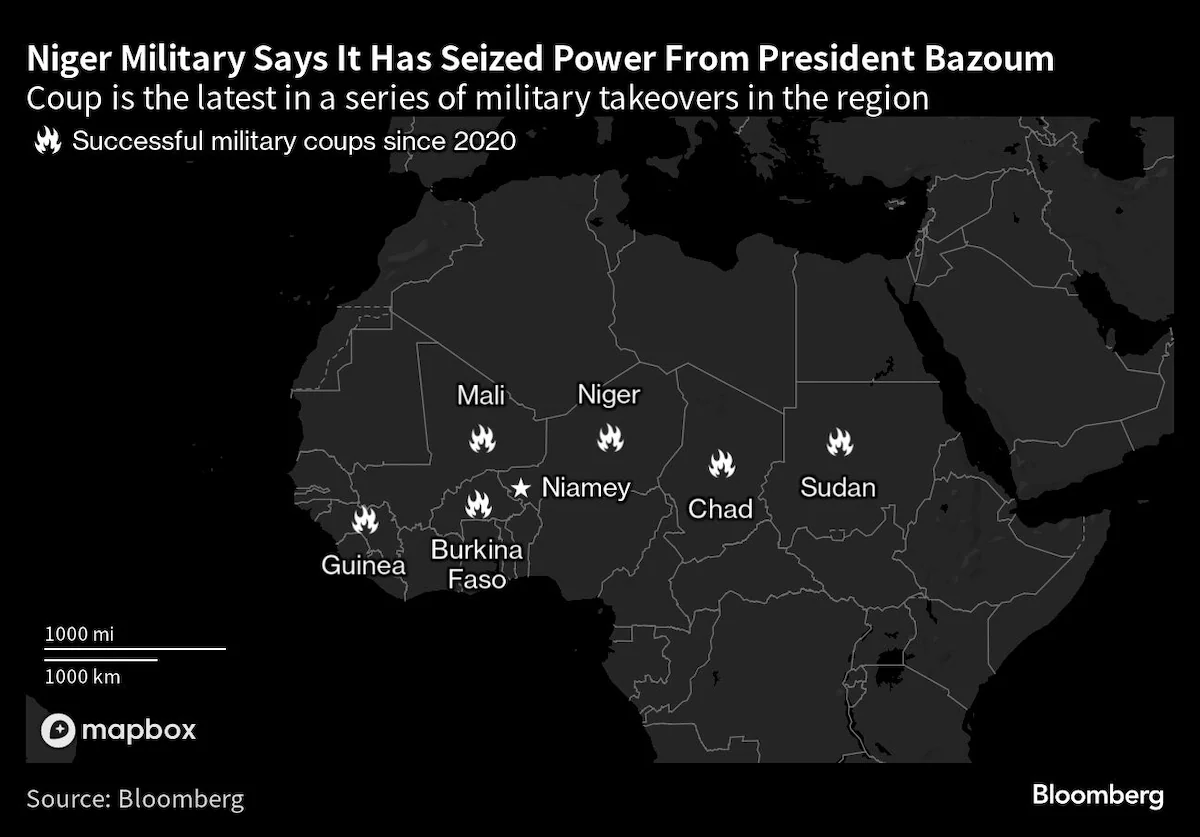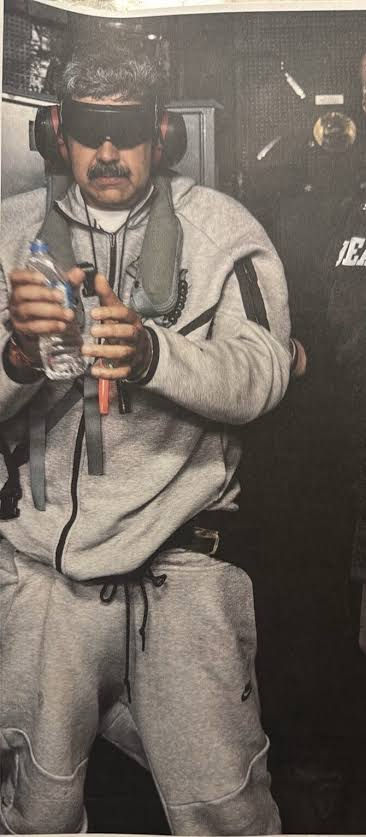What is happening in Niger?
- Sebastian Palacios.

- Aug 3, 2023
- 3 min read
Niger, a NATO ally which is located in the heart of the African Sahel, and is classified by the UN as the second least developed country in the world but is rich in uranium, suffered last week a coup d'etat by a pro-Russian military junta.
The members of Niger’s presidential guard, led by Omar Tchiani, detained the democratically elected president Mohamed Bazoum, who oversaw in 2021 the first peaceful transition of power since the country became independent from France in 1960.
The junta is arguing growing insecurity with Islamic insurgents and poor economic performance in recent years as their motivation to take power by force. The real reasons, however, are more complicated:
Niger is one of the poorest countries in the world, with 60% of the population living under the UN's official poverty line ($1.9 per day). It is also Africa’s second-biggest uranium producer, a mineral that is essential for nuclear energy. France was getting around 18% of its uranium imports from Niger in the last decade, and Bazoum has been an ally to the US and EU in the fight against terrorism and curbing illegal immigration.
Indeed, western powers have been giving Niger $100 million euros per year since 2015 in aid assistance, and have military bases in Niger (around 3000 soldiers total) to target insurgents connected with al-Qaeda and the Islamic State.
The Economic Community of West African States (ECOWAS), now a 12-nation regional bloc, the African Union, the US and other Western powers condemned the attempted takeover and called for Bazoum’s immediate release and reinstatement.
ECOWAS gave the junta seven days to reinstate President Mohamed Bazoum, who is being held captive, otherwise they would intervene militarily. The junta responded saying it would resist any "plan of aggression against Niger by regional or Western powers", and that they have many allies (Russia, Burkina Faso and Mali) that could intervene as well.
Since 2010, there have been over 40 coups in Africa, most of them occurring in former French colonies. In the Sahel region, where Niger is located, six contiguous states across Africa, from Guinea on the Atlantic Ocean to Sudan on the Red Sea, have suffered eight military coups in the same period.
Two important neighbors of Niger, Mali in 2021 and Burkina Faso in 2022, had coups that expelled French troops based there. The new juntas hired instead the Russian Wagner Group with the argument that Prigozhin's troops were better in fighting Islamic terrorism. Even more, Mali's junta expelled the UN's 12,000 peacekeepers following a decade of countering Islamist militants.
In that way, Russia has been expanding its presence and advancing its economic interests in West Africa by supporting non-democratic military juntas with an anti-French discourse. After the French Embassy in the capital Niamey was stormed by pro-coup supporters, the Wagner boss declared: "What happened in Niger is nothing other than the struggle of the people of Niger with their colonizers".
Niger’s internal ethnic tensions are a significant factor in the current political instability and the division that prevailed in the army:
Appointments are made along ethnic lines rather than for professional reasons. Bazoum was part of the Arab minority that included the semi-nomadic Tuareg tribes, and has always been labeled as having foreign origins.
The borders of Niger, like many African states, were created by European colonialism, so it is difficult to build a country with a system of quotas by ethnicity.
Another factor for the unrest has been the large number of foreign military troops in the country. In 2019, the US opened a drone base, and in 2022 France and other European allies moved their forces from neighboring Mali after a hostile junta against their interests took the power. Bazoum was quick to invite them to Niger instead, but this was not well received by some sectors of the military and political elites.
So far, France has said that their uranium supplies are secured and no big disturbances in nuclear energy are expected. But, a major regional war could erupt between the 12 ECOWAS countries, supported by western powers, and an alliance made by Niger, Burkina Faso and Mali. And of course, Russia would be involved with the presence of the Wagner Group, which would make the armed conflict extremely difficult to solve.



















Comments